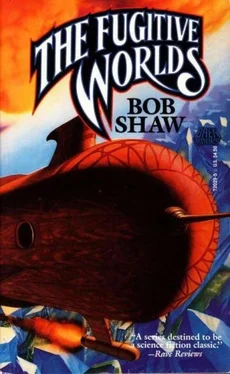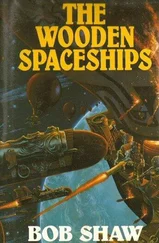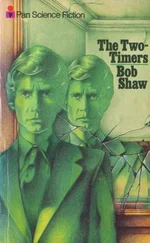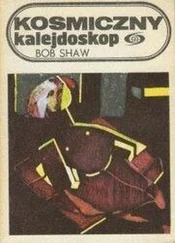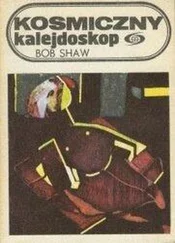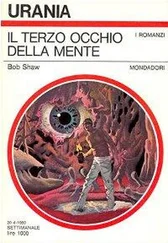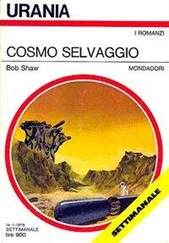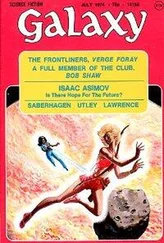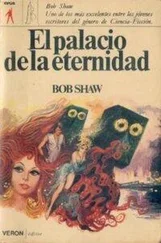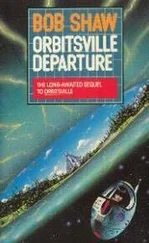Bob Shaw - The Fugitive Worlds
Здесь есть возможность читать онлайн «Bob Shaw - The Fugitive Worlds» весь текст электронной книги совершенно бесплатно (целиком полную версию без сокращений). В некоторых случаях можно слушать аудио, скачать через торрент в формате fb2 и присутствует краткое содержание. Год выпуска: 1990, ISBN: 1990, Издательство: Baen Books, Жанр: Фантастика и фэнтези, на английском языке. Описание произведения, (предисловие) а так же отзывы посетителей доступны на портале библиотеки ЛибКат.
- Название:The Fugitive Worlds
- Автор:
- Издательство:Baen Books
- Жанр:
- Год:1990
- ISBN:0-671-72029-5
- Рейтинг книги:3 / 5. Голосов: 1
-
Избранное:Добавить в избранное
- Отзывы:
-
Ваша оценка:
- 60
- 1
- 2
- 3
- 4
- 5
The Fugitive Worlds: краткое содержание, описание и аннотация
Предлагаем к чтению аннотацию, описание, краткое содержание или предисловие (зависит от того, что написал сам автор книги «The Fugitive Worlds»). Если вы не нашли необходимую информацию о книге — напишите в комментариях, мы постараемся отыскать её.
The Fugitive Worlds — читать онлайн бесплатно полную книгу (весь текст) целиком
Ниже представлен текст книги, разбитый по страницам. Система сохранения места последней прочитанной страницы, позволяет с удобством читать онлайн бесплатно книгу «The Fugitive Worlds», без необходимости каждый раз заново искать на чём Вы остановились. Поставьте закладку, и сможете в любой момент перейти на страницу, на которой закончили чтение.
Интервал:
Закладка:
For what seemed a long time after Toller had begun firing one of the tiny cross-mounted jets it seemed that its thrust was having no effect, then with grudging slowness the great disk of Overland made its way up the sky. As it showed itself above the ship’s rail, hanging before the crew in all its painted vastness, the immense convexity that was the Old World emerged from behind the balloon and drifted downwards. There was a moment during which, simply by turning his head from side to side, Toller could see two worlds laid out in their entirety for his inspection—the twin arenas in which his kind had fought all the battles of evolution and history.
Superimposed on each planet, and similarly lit from the side, were the other ships of the fleet. They were in varying attitudes—each pilot inverting at his own pace—arcs of white condensation from their lateral jets complementing the global cloud patterns thousands of miles below. And embracing the spectacle was the frozen luminous panoply of the universe—the circles and spirals and streamers of silver radiance, the fields of brilliant stars with blue and white predominant, the silent-hovering comets and the darting meteors.
It was a sight which both thrilled and chilled Toller, making him proud of his people’s courage in daring to cross the interplanetary void in frail constructs of cloth and wood, and at the same time reminding him that—for all their ambitions and dreams—men were little more than microbes laboring from one grain of sand to another.
He would not have cared to admit as much to any of his peers, but it was a comfort to him when the inversion maneuver had been completed and the ship was sinking back into humanity’s natural domain. From now on the air would grow thicker and warmer, less inimical to life, and all his preoccupations would begin to resume their normal importance.
“That’s how it’s done,” he said, returning control of the vessel to Correvalte. “Get the mechanic to convert the engine back to burner mode, and tell him to make sure that the heaters are working properly.”
Toller emphasized the final point because, although the aerial environment would indeed grow less harsh as the ship lost height, the direction of the airflow over the ship would be reversed. The considerable amount of heat lost from the balloon’s surface would be borne upwards and away in the slipstream instead of bathing the gondola with an invisible balm which helped protect its occupants from the deadly coldness of the mid-passage.
The engine had to be shut down while being converted from a thrust creator to a producer of hot gas for conventional aerostatic flight, and Toller took advantage of the period of quietude to go into the forward cabin in search of nourishment. Nobody had ever explained the baffling sensation of falling which men experienced in and close to the weightless zone, but it had been spoiling his appetite for more than a day and as a result he was in the ambivalent position of needing food while not actually wanting it. The selection of fare he found in the provision nets—strips of dried meat and fish, cereals and puckered fruit and berries—was less than seductive. He rummaged through what was available and finally settled for a slab of grain cake which he chewed upon without enthusiasm.
“Don’t despair, young Maraquine!” Commissioner Kettoran, who had wedged himself into a seat at the captain’s table, was feigning cheerfulness. “We’ll soon be in Ro-Atabri, and once we’re there I’ll take you to some of the best eating places in the world. Mind you, they’ll be in ruins—but I’ll take you to them anyway.” Kettoran winked at his secretary, Parlo Wotoorb—who was across the table from him—and both old men hunched their thin shoulders in amusement, looking strangely alike.
Still chewing, Toller nodded gravely to acknowledge the witticism. Kettoran and Wotoorb had been contemporaries of his grandfather. They had actually known him—a privilege he envied—and both had survived to quite an advanced age with no apparent erosion of their faculties. Toller doubted that he would reach his seventies with the same degree of fortitude and resilience. It had always seemed to him that there was a special quality about the men and women who had lived through the great events of recent history—the ptertha plague, the Migration, the conquest of Overland, the war between the sister worlds. It was as though their characters and spirits had been tempered in the crucible of their times, whereas he was destined to live through a fallow period, never knowing for sure if he had it within him to respond to, and as a consequence be ennobled by, a great challenge. Try as he might, he could not imagine the tamed and stable circumstances of his day yielding up adventures which were in any way comparable with those which had earned Toller the Kingslayer his place in legend. Even the journey between the worlds, which had once been the dangerous limit of men’s experience, had become a routine matter…
A sudden brightness washed in through the portholes on the left side of the room—momentarily rivaling the prisms of sunlight which slanted across the table from the opposite wall—and somebody outside on the open deck gave a howl of fright.
“What was that?” Toller was starting for the door, hindered by the lack of gravity, when there came an appalling burst of sound, akin to the loudest thunderclap he had ever heard. The room tilted and small objects chattered noisily in their brackets.
Echoes of the thunder were still booming and surging when Toller got the door open and was able to propel himself out of the cabin. The ship was twisting in violent air currents which drew groans and creaks from the rigging. Lieutenant Correvalte and the mechanic were clinging to lines by the engine, their shocked faces turned towards the north-west. Toller looked in the same direction and saw a restless, swirling core of fiery brilliance which quickly dwindled into nothingness. All at once the sky was placid again, the silence complete except for faint cries coming from men on other ships.
“Was it a meteor?” Toller called out, aware of the question’s superfluity.
Correvalte nodded. “A big one, sir. It missed us by about a mile, perhaps more, but for a moment I thought our time had come. I never want to see anything like that again.”
“You probably never will,” Toller said reassuringly. “Get the rigger to check the envelope for damage, particularly around the strut attachments. What is the fellow’s name?”
“Getchert, sir.”
“Well, tell Getchert to look lively—it’s time he did something to earn his salt on this trip.”
As Correvalte moved away towards the aft superstructure, where the ordinary crew members were housed, Toller gripped a transverse line and drew himself to the rail. Now that the inversion had been carried out he could see only the ships of his own echelon and, below him, the balloons of the four leading vessels, but all seemed well with the fleet in general. He had made many ascents to the weightless zone and as a result had become inured to the thought of a meteor actually striking a ship. It was one of the rare cases in which he could draw comfort from thinking about man’s insignificance in the scale of cosmic events. His ships were so small and the universe so large that it would be quite unreasonable for one of the blazing cosmic bullets to find a human mark.
It was ironic that only minutes earlier he had been privately bemoaning the humdrum nature of interplanetary flight, but if there were to be dangers he wanted them to be of a type which could be challenged and overcome. There was precious little glory to be wrung from casual extermination by a blind instrument of nature, a commonplace fragment of rock speeding through the void from…
Читать дальшеИнтервал:
Закладка:
Похожие книги на «The Fugitive Worlds»
Представляем Вашему вниманию похожие книги на «The Fugitive Worlds» списком для выбора. Мы отобрали схожую по названию и смыслу литературу в надежде предоставить читателям больше вариантов отыскать новые, интересные, ещё непрочитанные произведения.
Обсуждение, отзывы о книге «The Fugitive Worlds» и просто собственные мнения читателей. Оставьте ваши комментарии, напишите, что Вы думаете о произведении, его смысле или главных героях. Укажите что конкретно понравилось, а что нет, и почему Вы так считаете.
